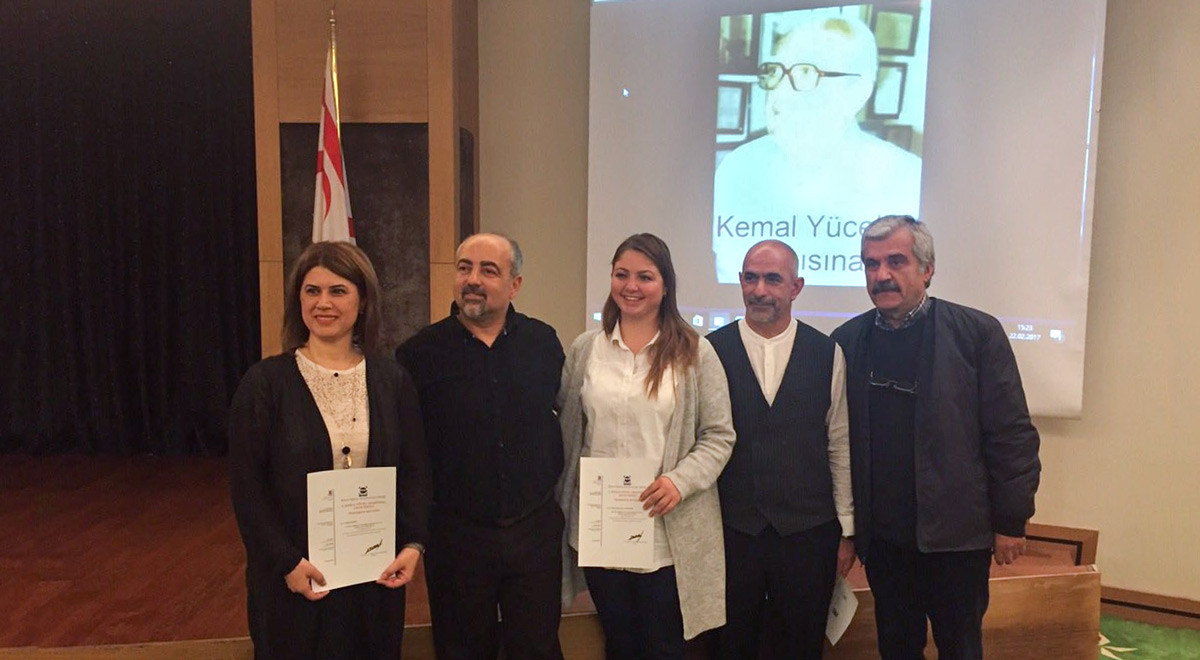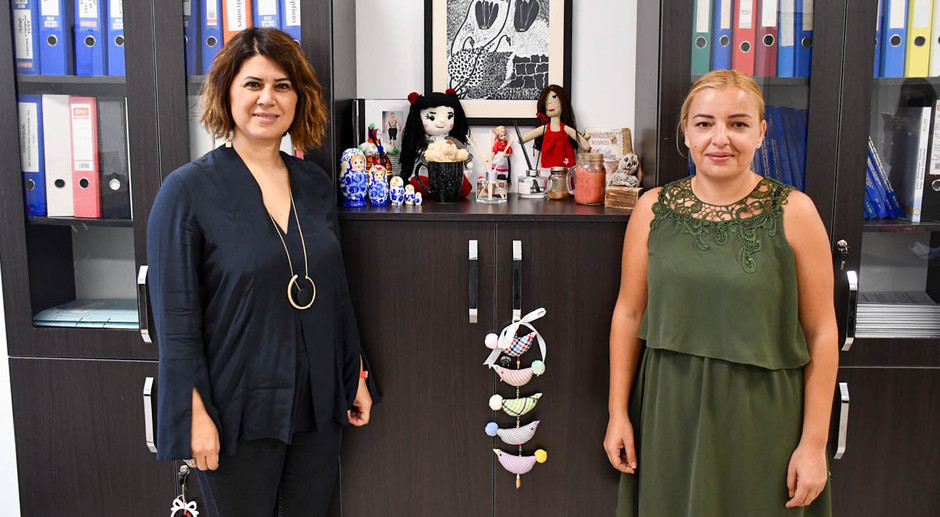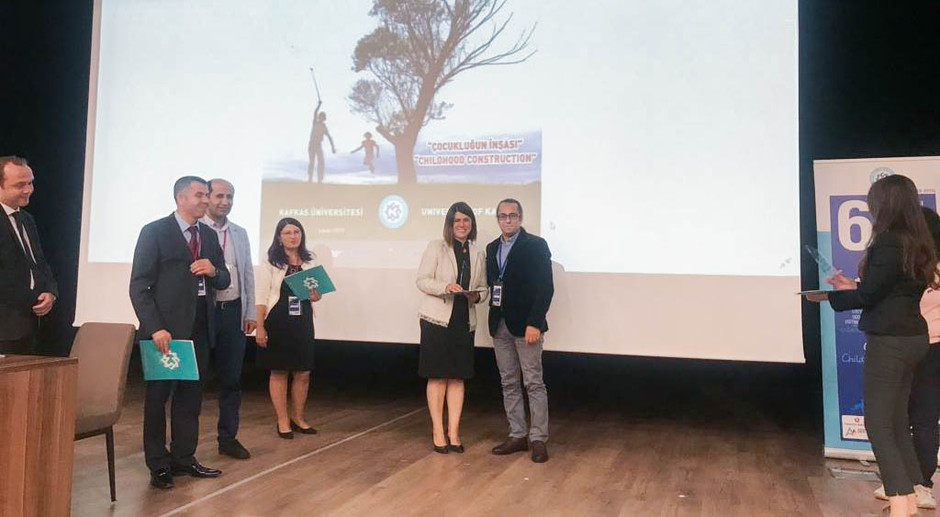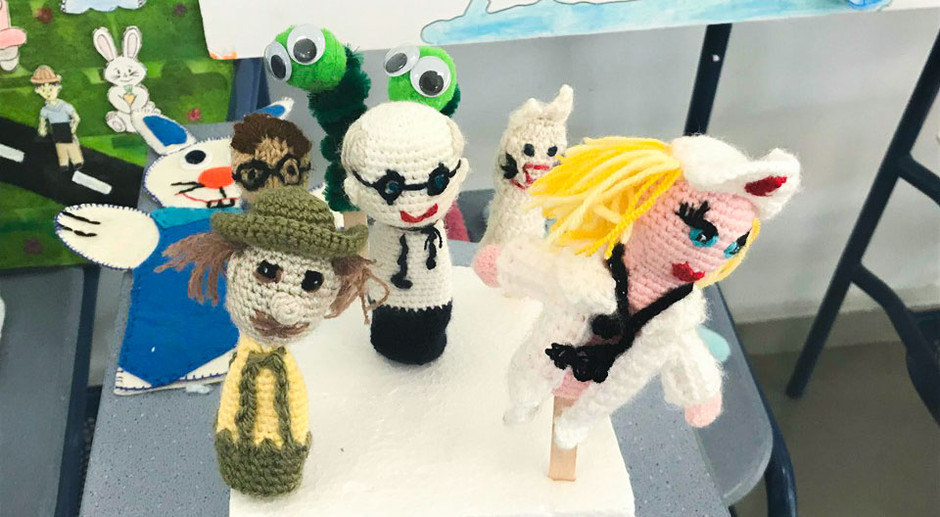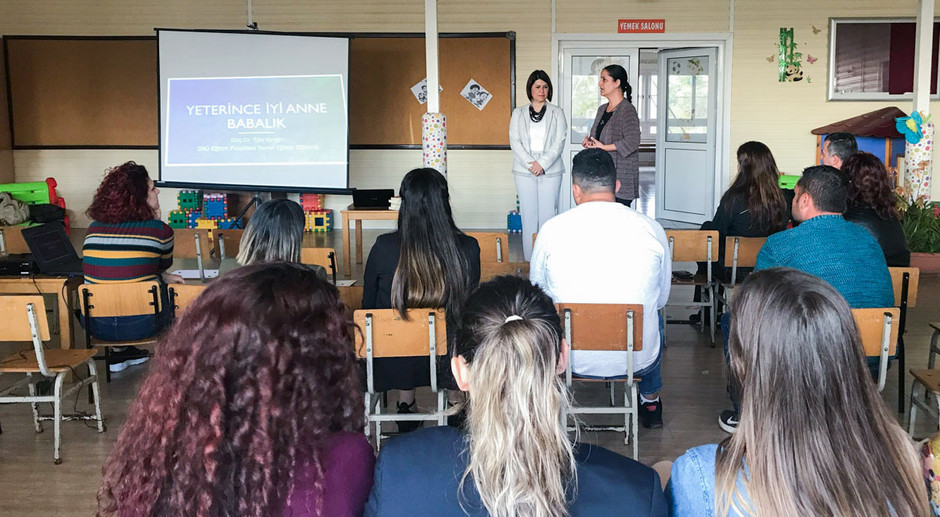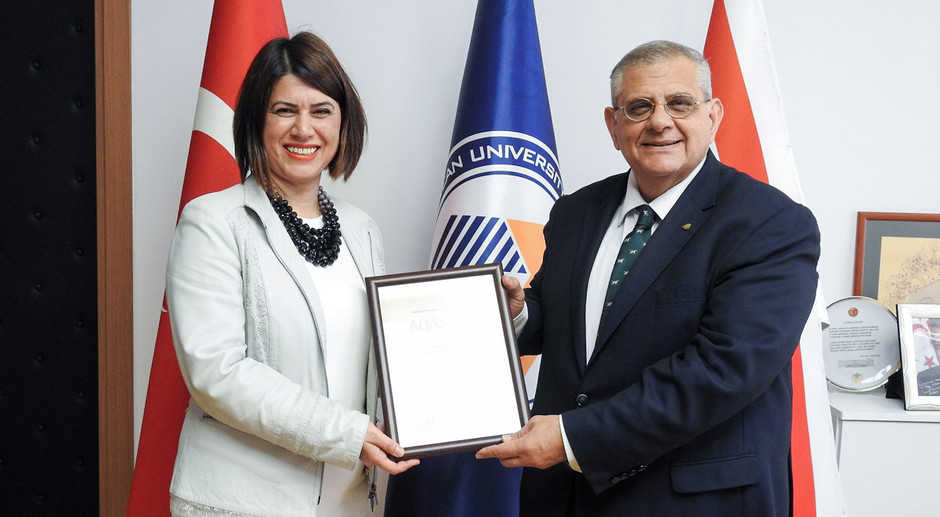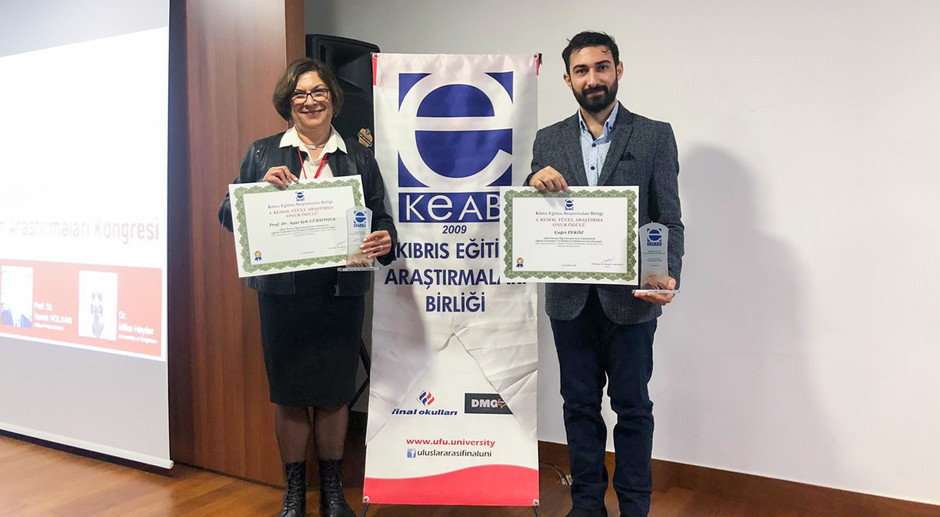Eastern Mediterranean University Education Faculty, Elementary Education Department academic staff member Assist. Prof. Dr. Eda Kargı, Senior Instructor Yücel Yazgın and Academic Expert Mesut Aydener’s research titled “The Intergenational Evolution of Games and Toys in North Cyprus” qualified for finals in the 2nd Kemal Yücel Honorary Award Competition and was qualified as one of the best three scientific research participating in the said competition.
The award ceremony, which took place at Golden Tulip Hotel on the fourth anniversary of the passing of Kemal Yücel, commenced with a presentation on Kemal Yücel’s life followed by General Secretary Salih Sarpten’s opening address. After Sarpten’s speech, President Mustafa Akıncı also delivered a speech in which he stated that Kemal Yücel was such a unique educator supporting learning and teaching at all ages. Akıncı added that he was one of the lucky students to have attended Yücel’s German classes. The event continued with Kemal Yücel’s son Dr. Hakkı Yücel’s and the Educational Research Association Chair Assist. Prof. Dr. Kemal Batman’s speeches and the presentation of awards to researchers.
Kargı , Aydener and Yazgın based their research on the statement that “The Understanding of Play and Childhood go parallel with each other”. The said researchers carried out their research on 30 residents of the villages of Kaleburnu, Erenköy, Yeşilköy and Mehmetçik. The birth dates of those participating in the research range between 1932 and 1994, allowing the inclusion of the representatives of three generations in the study.
The research found out that a wide spectrum of game types exists in Cyprus but the creativity, spontaneity and natural state are all being diminished. At the end of the research, the researchers have reached to a conclusion stating that as it is all over the world, the concept of childhood in Cyprus is changing based on the effects of modernisation, globalisation and new technologies. The researchers also recommend that despite the changes, there have to be communal efforts in supporting the continuation of traditional elements.

